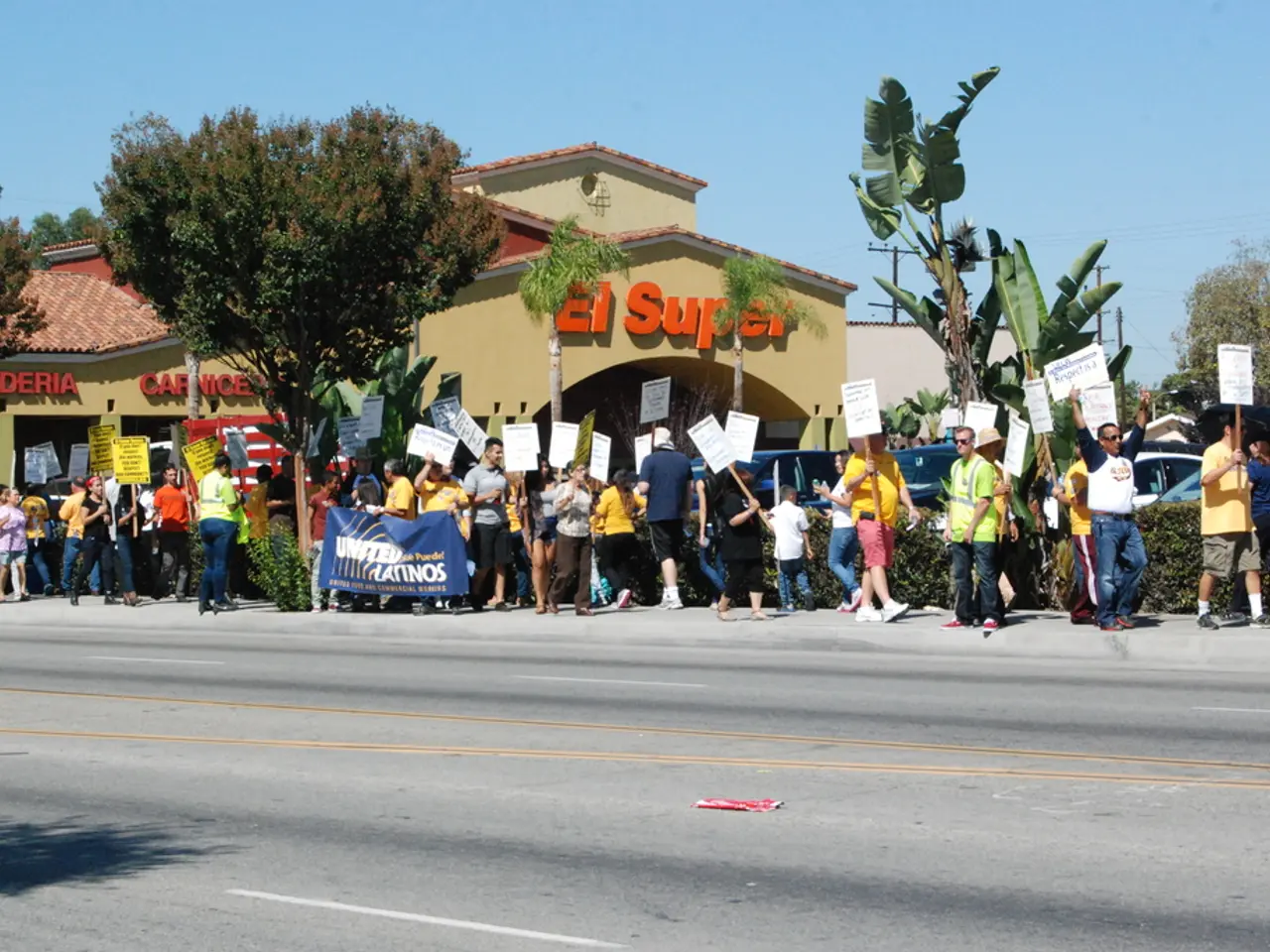Developing a Data Analytics Center of Political Excellence
In the fast-paced world of politics, a Data Analytics Center of Excellence (DACE) has become a crucial asset for campaigns aiming to stay ahead of the game. This centralized unit leads data strategy, analytics operations, and insight generation for electoral decision-making, providing a competitive edge in today's data-driven landscape.
A political DACE is spearheaded by a Chief Data Officer or Data Strategy Head, supported by a team of analysts, data engineers, visualization experts, and field intelligence liaisons. This dedicated team is responsible for identifying new and innovative ways to use data to forward the organization's goals, improving campaign efficiency by centralizing analytics capabilities, reducing data silos, streamlining reporting, and enabling faster, more accurate decision-making.
The DACE's role extends beyond mere number-crunching. It is also tasked with addressing ethical considerations, such as consent management, bias mitigation, transparency in usage, and ensuring data is not used for manipulation or misinformation.
Commonly used tools in a political DACE include platforms like Tableau, Power BI, R, Python, SQL, Google BigQuery, and CRM systems like NationBuilder or Ecanvasser. These tools facilitate data collection, processing, and analysis, enabling the team to provide actionable insights to campaign leaders.
The first step in creating a DACE is to identify a clear business objective that the DACE will help to achieve. Once established, the DACE should focus on building a dedicated team and leadership, centralizing and standardizing data and tools, developing and validating statistical models, ensuring data quality and vendor management, training and capacity building, and creating an efficiency and scalability framework.
Moreover, a well-functioning DACE is critical for any organization that wants to use data analytics effectively. Even local campaigns benefit from data-driven voter insights in tightly contested or demographically complex constituencies. A DACE can provide peace of mind by ensuring that an organization has someone who focuses on maintaining and improving its data infrastructure.
In times of political crises, real-time dashboards and social listening tools in political DACEs allow for immediate issue detection and coordinated response strategies. AI supports predictive analytics, sentiment analysis, chatbot voter interactions, and automated anomaly detection across campaign data, while insights from data analysis guide narrative development, issue prioritization, and content timing to match public sentiment and interest.
A political DACE enhances voter engagement by identifying optimal contact times, preferred communication channels, and content personalization strategies to improve voter response. It also supports voter targeting and micro-messaging by building predictive models that cluster voters into actionable segments based on behavior, preferences, geography, and turnout likelihood.
Parties can build their own political DACE by investing in skilled talent, adopting the right tools, defining governance models, and aligning data goals with campaign objectives. Data governance in political DACEs is maintained through defined access protocols, data encryption, privacy compliance, and centralized audit trails for accountability.
By combining technical depth, strategic vision, data quality focus, and continuous training under a well-led Analytics Center of Excellence, political campaigns can maximize data-driven decision-making effectiveness and ultimately improve campaign outcomes. This approach aligns with best practices employed in high-stakes election operations like ABC News' Decision Desk and leading analytics organizations developing CoEs.
- In the political realm, a Data Analytics Center of Excellence (DACE) is instrumental in providing a competitive edge for campaigns by centralizing analytics capabilities, reducing data silos, and streamlining reporting to improve decision-making.
- A well-functioning DACE also addresses ethical considerations, such as managing consent, mitigating bias, ensuring transparency, and preventing manipulation or misinformation of data.
- Commonly used tools in a political DACE include Tableau, Power BI, R, Python, SQL, Google BigQuery, CRM systems like NationBuilder or Ecanvasser, and more, to facilitate data collection, processing, and analysis.
- Moreover, a DACE can significantly benefit local campaigns by providing data-driven voter insights in tight contests or complex demographics, enhancing voter engagement through optimal contact times, preferred channels, and content personalization strategies.








